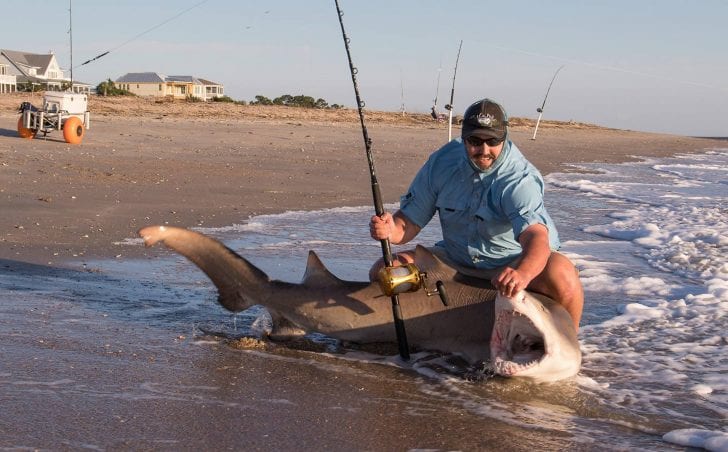There is something distinctly different in the fishing industry today that back in the 70s and 80s when I was a child growing up was not really talked about around here in Charleston.
Simply glancing over the forums online or listening in your local shops there is much talk about shark fishing.
This simply did not happen when I was young, whether on purpose or not, I do not know nor remember.
I do remember when I was younger that when a charter guide would take you out on a 4 hour charter, sharks were not a goal, but a way to get a tip after being skunked for 3 hrs. Times have definitely changed.
Now there are shark charters, land based shark fishing clubs, shark tourneys, and other shark specific outings and organizations with a massive following and massive appeal.
St Helena Sound is now the shark ground zero, the breeding and birthing destination for the 25 species or so of sharks that swim through coastal Carolina Coast most of the year.
Most shark species cycle from Florida up the Atlantic as far as Chesapeake/Long Island Sound
In the last decade or so, our ocean has warmed. The South Carolina coast now has Floridian water temperature, while the Florida coast is Caribbean.
All those sharks have followed water temperature north. Most shark species cycle from Florida up the Atlantic as far as Chesapeake/Long Island Sound. shark
They follow warm weather patterns and the jet stream. This is why they seem to disappear during the winter.
Nowadays, starting in March or April of every year, catching a shark off of Folly, Edisto, Beaufort, Hilton Head, and Seabrook is commonplace.
You can catch them inshore, near shore, or offshore.
Sharks now have their own classification through SC DNR regulations with about half having 1 per person or boat and the other half possession prohibited.
If you are planning on keeping any, please know these differences.
A problem people deal with while shark fishing is releasing them. Be sure to keep the larger ones wet or partially submerged, and always splash water around the gills.
Normally, regardless of how tired or sore you are, they are feeling much worse. Try the best you can to remove the hook, or if this is not possible cut the line at the hook and get him back in the water as soon as possible.
There is something fun about having a rod in a surf spike while playing horseshoes with your family at the beach when all of a sudden the heavy action rod with a 6000 series reel starts screaming and your rod bends 90 degrees.
The fight that ensues lasts about 30 minutes and by the time you’re done, everyone and their mamma comes out of nowhere to watch.
I always smile to myself as I release it back into the water while my arm is sore thinking; I’ve just made my last minute tip.
Kyle Comen / South Side Bait and Tackle
SouthsideBaitandTackle.com
(843) 203-6561
You may also enjoy reading March Freshwater Fishing



